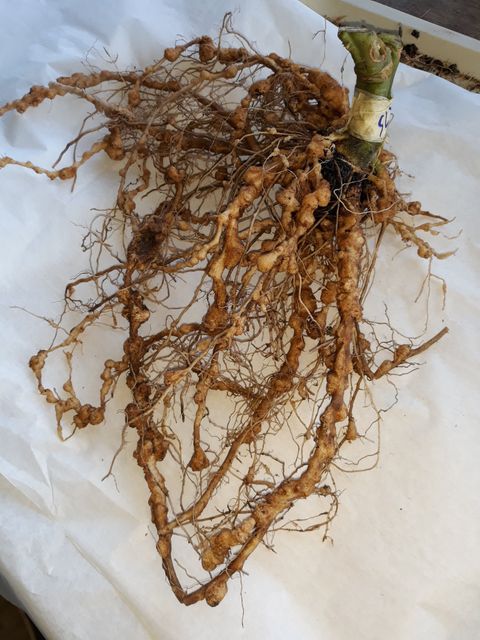HOME
Host adaptation and root-knot nematode selection by partially resistant tomato rootstocks
Handler Project
Root-knot nematodes (RKN) are plant parasitic nematodes belonging to the genus Meloidogyne. They have a worldwide distribution and are polyphagous; it is estimated that overall they can parasitize all plants. They negatively affect plants feeding on root cells and interfering with the normal structure and function of plant roots. In horticultural crops, especially in greenhouses, they cause major damage and may lead to 100% production losses. Most RKN species can infect, feed and multiply in tomato roots thus tomato is considered an universal host.
The most efficient control methods are synthetic pesticides, which, however, have only a temporary effect on nematode populations and high environmental toxicity. For this reason, they have been banned in Europe, which has motivated the investigation of alternative forms of control. Regarding tomato plants grafting is an alternative control strategy that has become increasingly popular. Several commercially rootstocks are available, but none of them are fully resilient. Thus, the use of grafting may act as selective pressure, increasing nematode virulence, that is, increasing nematode populations ability to infect plants.
The overarching objective of the HANDLER project is to assess, in a
quantitative manner, the population dynamics of virulence development at different temperatures, and the apparent
competition effects that lead to RKN population selection by partially-resistant rootstocks.
This work is funded by national funds through the FCT - Foundation for Science and Technology, IP, and co-financed by European funds from FEDER (European Regional Development Fund) through the COMPETE2020 (Competitiveness Factors Operational Program ) program. Project POCI-01-0145-FEDER-029283; PTDC / ASP-PLA / 29283/2017.

Siga-Nos!
This research is supported by national funds through FCT (Fundação para a Ciência e a Tecnologia) and by European funds of FEDER (Fundo Europeu de Desenvolvimento Regional), within the COMPETE 2020 (Programa Operacional Factores de Competitividade) under project POCI-01-0145-FEDER-029283; PTDC/ASP-PLA/29283/2017






